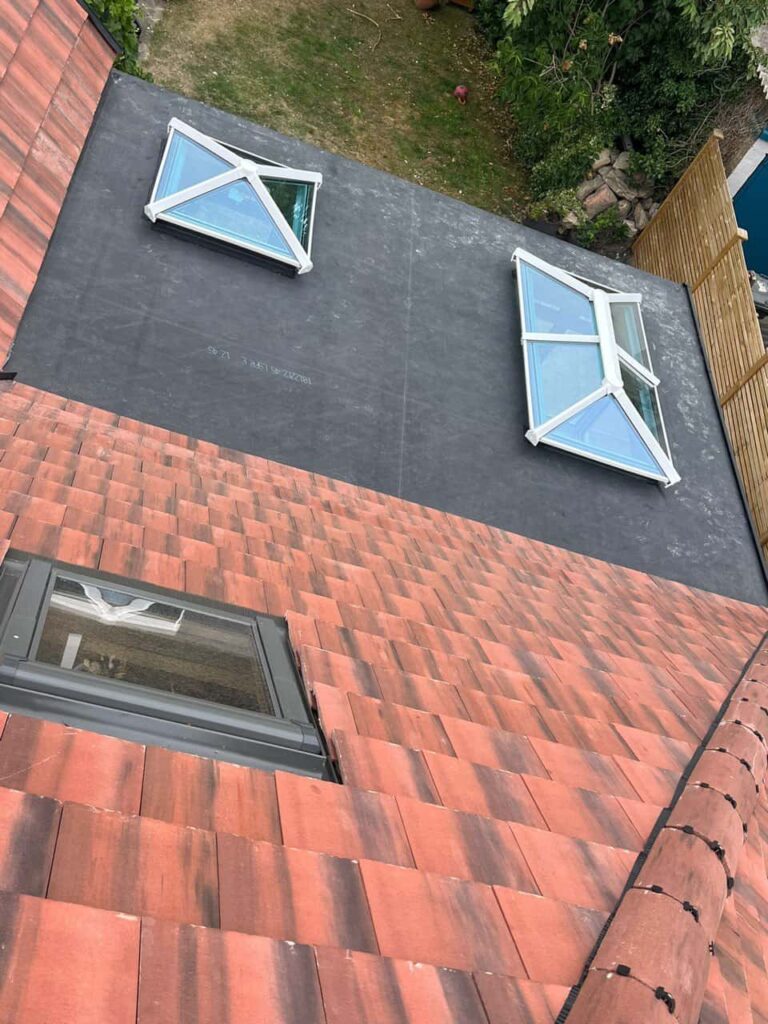A slipped tile may seem like a minor issue, but it can lead to more significant roof problems if not addressed promptly. Many homeowners are unaware of how even a small shift in a single tile can have a domino effect, potentially damaging other parts of the roof and compromising the integrity of the entire structure. In this post, we’ll explore how slipped tiles can affect your roof, the risks associated with neglecting them, and why timely repairs are crucial for the longevity of your roof.
What Causes Tiles to Slip?
Tiles on your roof can slip for a variety of reasons. The most common causes include:
1. Age and Wear
Over time, roofing materials such as tiles can weaken due to exposure to the elements. The sun, wind, and rain gradually take a toll, causing tiles to become brittle and more prone to slipping.
2. Improper Installation
If the roof tiles were not installed properly in the first place, they may not be securely anchored. This can cause them to shift or slip, especially during harsh weather conditions like heavy winds or storms.
3. Structural Shifting
Movement in the underlying roof structure, such as the rafters or trusses, can also cause tiles to become dislodged. This could be due to settling or poor construction.
4. Storm Damage
High winds and storms can easily shift tiles, causing them to slip. Additionally, debris such as tree branches can strike the roof, knocking tiles loose.
5. Moss and Algae Growth
Moss and algae can build up on roof tiles, especially in shaded or damp areas. This growth can push tiles out of place and cause them to slip or crack.
The Risks of Slipped Tiles
While a slipped tile might seem like a minor issue, it can lead to a range of problems for your roof and home.
1. Water Leaks
One of the most immediate risks of slipped tiles is water infiltration. If a tile has moved or fallen out of place, the protective barrier it provided is compromised. This can lead to leaks, water damage, and potential structural issues in your home. If left unchecked, this can also result in significant interior damage to walls, ceilings, and insulation.
2. Weakened Roof Structure
When tiles slip, the roof becomes less effective at shedding water, causing moisture to seep into the roof’s structure. Over time, this can weaken the roof’s integrity, leading to more serious damage, including rotting wood, rusted metal supports, or even roof collapse in extreme cases.
3. Increased Energy Bills
If slipped tiles are allowing drafts or leaks, this can affect the insulation in your home. With poor insulation, your heating system will have to work harder to maintain a comfortable temperature, leading to higher energy bills.
4. Potential for Further Tile Damage
A single slipped tile may cause a chain reaction. The movement of one tile can shift others, leading to a domino effect where more tiles become dislodged or cracked. This can turn a small, easily fixable issue into a much larger, costlier problem.
How to Prevent and Repair Slipped Tiles
1. Regular Roof Inspections
One of the best ways to prevent slipped tiles from causing significant damage is to schedule regular roof inspections. A professional roofing contractor can identify weak points in your roof, such as cracked tiles, damaged flashing, or loose components, before they cause further issues.
2. Prompt Repairs
If you notice a slipped tile, it’s essential to act quickly. Replacing or securing the tile as soon as possible can prevent more severe damage from occurring. Attempting DIY repairs, however, can lead to further damage or personal injury, so it’s best to call in a professional roofer.
3. Roof Maintenance
Regular roof maintenance, including cleaning gutters, clearing debris, and removing moss, will help extend the lifespan of your roof and reduce the risk of tiles slipping. Professional cleaning services can help prevent the buildup of moss and algae, which often contribute to tile displacement.
4. Choose the Right Roofing Material
When repairing or replacing your roof, consider materials that are designed to withstand the local climate. High-quality, durable roofing tiles and materials will help prevent issues like slipping or cracking and provide better long-term protection for your home.
Conclusion: Don’t Let Slipped Tiles Cost You More
Slipped tiles are not just an inconvenience; they can compromise the entire roof system and lead to costly repairs. Regular roof inspections, prompt repairs, and preventative maintenance can help you avoid the domino effect of slipped tiles and keep your roof functioning as it should. By acting quickly and seeking professional help when necessary, you can ensure that your roof remains strong, safe, and secure for years to come.
If you notice any issues with your roof or suspect that tiles have slipped, don’t wait for further damage to occur. Contact LS Roofing Chesham today to schedule an inspection or repair. Our experienced team is ready to provide you with the expert service you need to keep your roof in top condition.
Call us on: 01494 302 493
Click here to find out more about LS Roofing Chesham
Click here to complete our contact form and see how we can help with your roofing needs.

